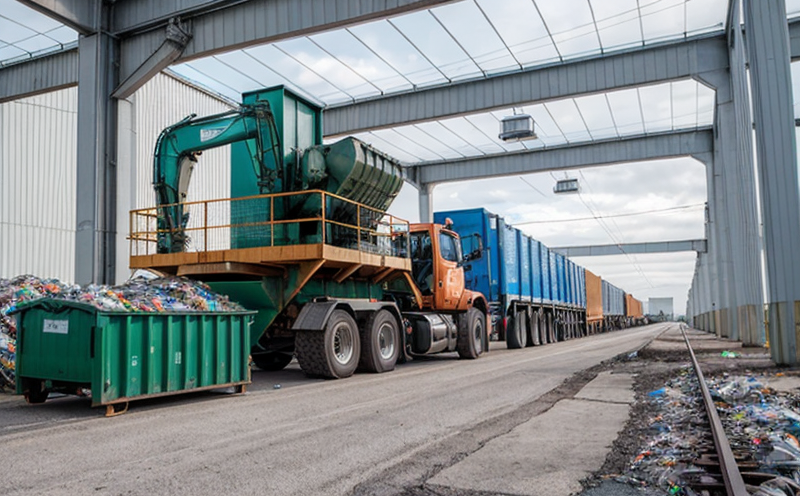ISO 14025 Environmental Labeling Testing for Circular Economy
The implementation of sustainable practices in industrial manufacturing and processing is a critical aspect of modern industrial strategy. ISO 14025, known as "Environmental labeling and declaration — General principles and self-declared environmental assessments," provides the framework for companies to demonstrate their commitment to sustainability through accurate and verifiable claims about the environmental impact of products.
The circular economy model emphasizes resource efficiency by promoting reuse, recycling, and recovery. This approach not only reduces waste but also minimizes raw material extraction, thereby supporting long-term ecological balance. Environmental labeling plays a pivotal role in this context; it informs consumers, stakeholders, and decision-makers about the environmental impact of products throughout their lifecycle.
ISO 14025 testing ensures that claims made regarding a product's environmental attributes are truthful and verifiable. This standard is particularly relevant for sectors like manufacturing, where continuous improvement processes are essential to meet regulatory requirements and customer expectations. By adhering to ISO 14025 standards, organizations can enhance their reputation, foster trust with stakeholders, and contribute positively to the circular economy.
The process of environmental labeling under ISO 14025 involves several steps: selecting relevant environmental attributes, establishing clear criteria for these attributes, collecting data, performing assessments, and finally declaring results. This structured approach ensures that all claims are based on rigorous methodologies and verifiable evidence. For industrial recycling processes specifically, this means assessing the energy efficiency of recycling plants, the recyclability of materials, and the carbon footprint reduction potential.
Industries such as metals processing, plastics manufacturing, and electronics production stand to benefit significantly from ISO 14025 compliance. By accurately labeling products according to their environmental impact, these sectors can differentiate themselves in a competitive market while contributing positively to global sustainability goals. This not only enhances brand reputation but also opens up new markets for eco-friendly products.
The role of laboratories in this process is crucial. They provide the necessary expertise and facilities to conduct tests that meet ISO 14025 standards. Our laboratory offers state-of-the-art equipment, experienced technicians, and a commitment to delivering accurate, reliable test results. We understand the importance of these tests for your organization's sustainability efforts.
Applied Standards
The primary standard applied in our service is ISO 14025, but we also adhere to other relevant international standards such as ISO 14040 and ISO 14046 for lifecycle assessment. These standards ensure that the testing process is comprehensive and meets global best practices.
- ISO 14025: Environmental labeling and declaration — General principles and self-declared environmental assessments
- ISO 14040: Lifecycle Assessment (LCA) of products
- ISO 14046: Communication of lifecycle assessment results
Our services are designed to integrate seamlessly with these standards, providing a holistic approach to environmental labeling and declaration.
Scope and Methodology
| Test Parameter | Description |
|---|---|
| Energy Efficiency | Evaluation of energy consumption in recycling processes. |
| Material Recyclability | Determination of the ease and feasibility of material recycling. |
| Carbon Footprint Reduction | Assessment of greenhouse gas emissions reductions achieved through recycling. |
The methodology for ISO 14025 testing involves multiple stages. Initially, we work closely with your team to define the scope and key environmental attributes relevant to your products or processes. This is followed by a detailed data collection phase where all necessary information is gathered from your operations.
Once collected, the data undergoes rigorous assessment using appropriate lifecycle assessment tools and methods. Finally, the results are compiled into an accurate and verifiable report that meets ISO 14025 standards. Our approach ensures transparency and credibility in every step of the process.
Use Cases and Application Examples
- Recycling Plant Efficiency: Assessing the energy efficiency improvements achieved by a recycling plant through new processes or equipment.
- Material Lifecycle Analysis: Evaluating the environmental impact of different materials used in industrial products across their lifecycle.
- Electronics Manufacturing: Testing the recyclability and carbon footprint reduction potential of electronic components.
- Metal Processing: Analyzing the energy savings from advanced recycling techniques in metal processing plants.
- Plastics Industry: Evaluating the environmental impact of plastic products throughout their lifecycle.
In each case, our testing services provide critical data that can drive continuous improvement within your organization. By understanding the environmental impact of your operations and products, you can make informed decisions to enhance sustainability and meet regulatory requirements.





